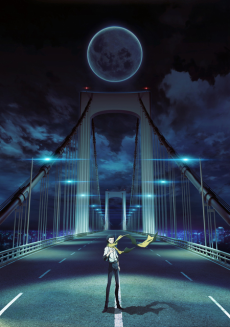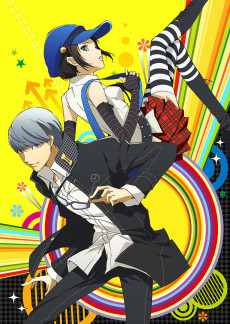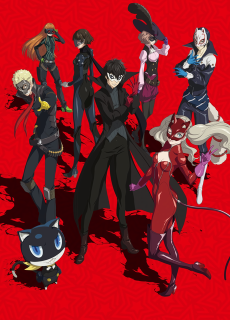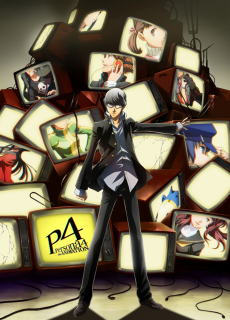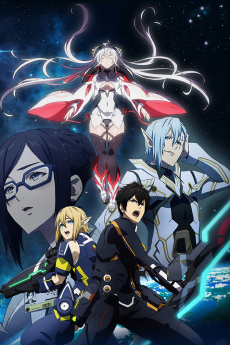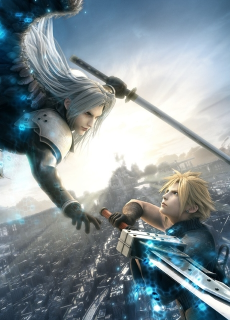PERSONA 3 THE MOVIE: #4 WINTER OF REBIRTH
MOVIE
Dubbed
SOURCE
VIDEO GAME
RELEASE
January 24, 2016
LENGTH
105 min
DESCRIPTION
To know death, to gaze at death, to face death. Makoto and his allies have grown through the many meetings and partings they have experienced. Their fight might not be for the sake of the world, but for themselves. Even so, they have continued to fight, believing that there are peaceful days waiting at the end of the battle.
CAST
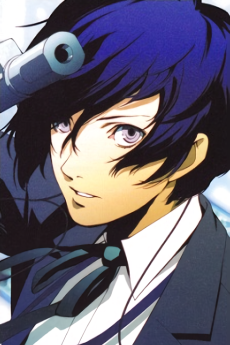
Makoto Yuuki
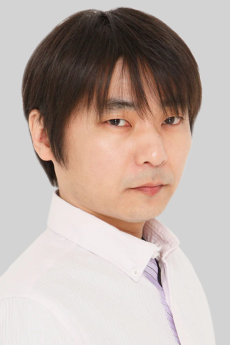
Akira Ishida
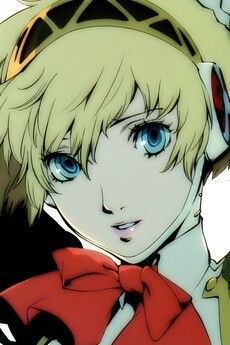
Aigis

Maaya Sakamoto
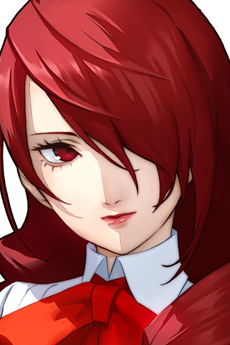
Mitsuru Kirijou

Rie Tanaka
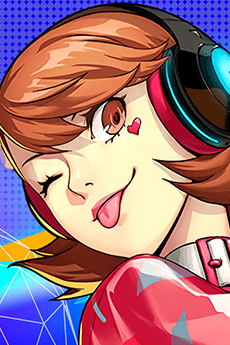
Yukari Takeba

Megumi Toyoguchi
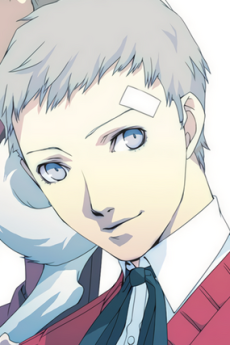
Akihiko Sanada
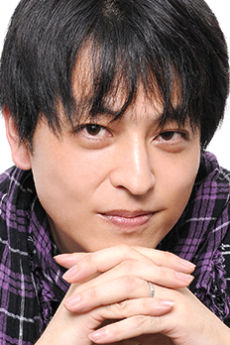
Hikaru Midorikawa
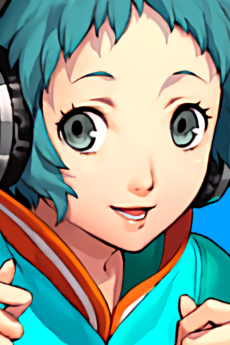
Fuuka Yamagishi
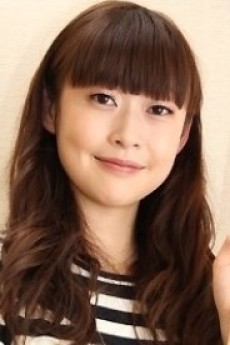
Mamiko Noto

Junpei Iori
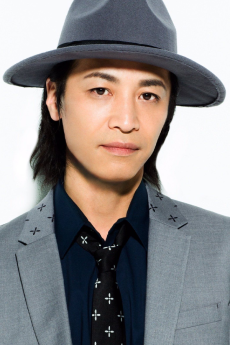
Kousuke Toriumi
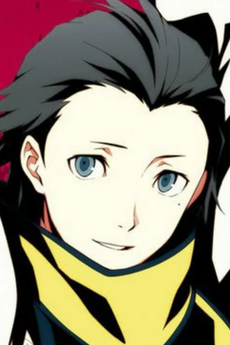
Ryouji Mochizuki

Akira Ishida

Koromaru
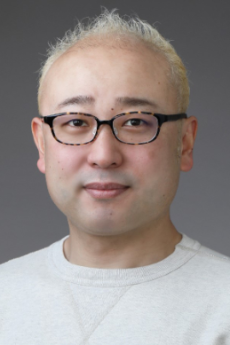
Shinya Takahashi
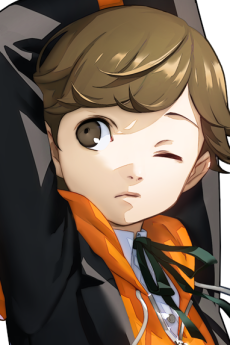
Ken Amada

Megumi Ogata
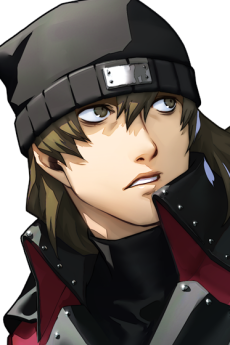
Shinjiro Aragaki
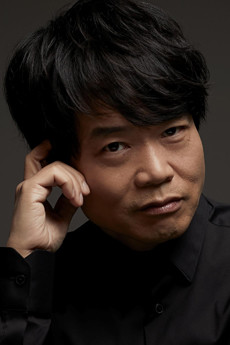
Kazuya Nakai
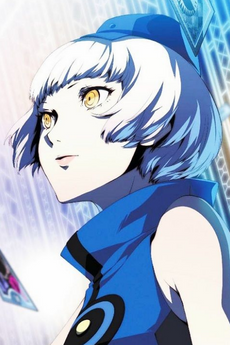
Elizabeth

Miyuki Sawashiro
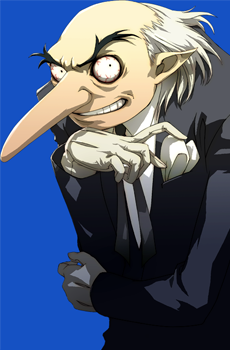
Igor

Isamu Tanonaka

Chihiro Fushimi

Ai Maeda
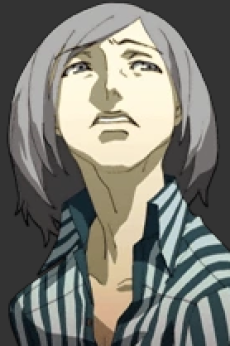
Akinari Kamiki
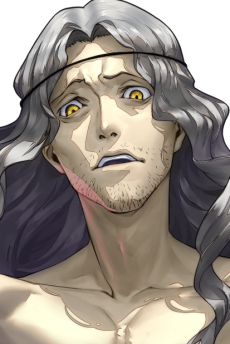
Takaya Sakaki

Nobutoshi Kanna
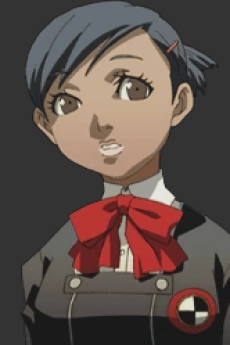
Yuko Nishiwaki
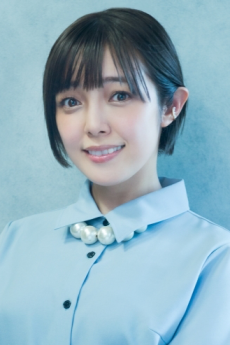
Satomi Satou
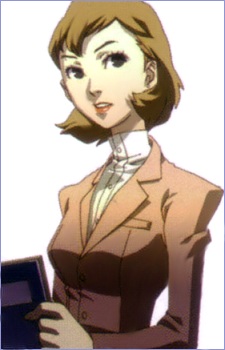
Isako Toriumi

Yuka Komatsu

Hidetoshi Odagiri
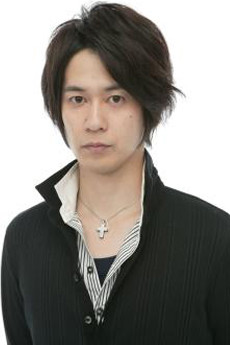
Hiroaki Miura
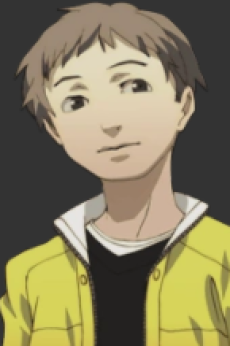
Kenji Tomochika
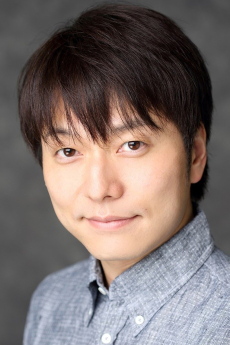
Kenji Nojima

Jin Shirato
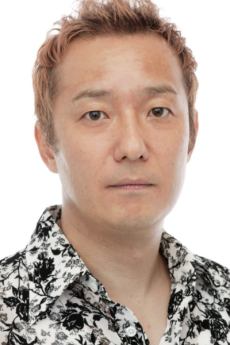
Masaya Onosaka

Kazushi Miyamoto
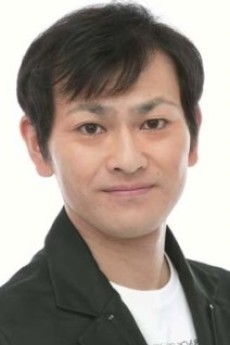
Atsushi Kisaichi
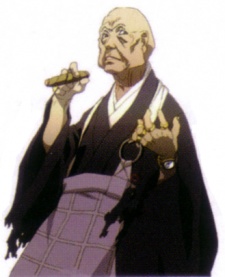
Mutatsu
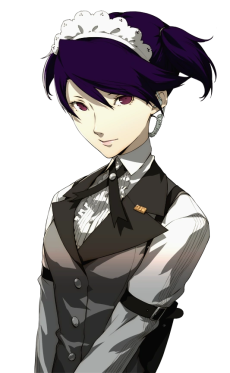
Kikuno Saikawa

Masumi Asano
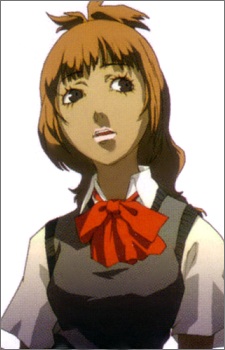
Natsuki Moriyama

Atsumi Tanezaki
RELATED TO PERSONA 3 THE MOVIE: #4 WINTER OF REBIRTH
REVIEWS

kasunex
50/100The Best and the WorstContinue on AniListI wrote this review back when I first saw this film in August of 2016, so take it with that grain of salt.
A few nights ago, I got around to watching the final entry in the Persona 3 film series. As you no doubt know from reading my previous review, I found Spring of Birth and Midsummer Knight’s Dream to be rushed, poorly focused, and lacking in character despite stunning visuals. I’ll be skipping over my thoughts on Falling Down, as they’re pretty much the same as my thoughts on the other two. All the same problems are present, and I’d just be largely repeating myself.
But Winter of Rebirth surprised me. It’s certainly the most…polarizing in the series. It somehow manages to give us both the best and the worst content. What it does right blows the previous three out of the water, and what it does wrong makes their problems look completely inoffensive by comparison.

Let’s talk about what this movie did right to start off since this is almost all talking about the first half anyways. Just like in the game, Ryoji tells the others that he will soon turn into Nyx Avatar and summon Nyx, an undefeatable force of nature, who will come and kill them all. However, the movie handles this much differently than the game did. In the game, the characters are overtly depressed for about a week, then begin to discuss and explore their thoughts on whether or not they should face Nyx. In the movie, however, their depression is the focus of the first half, and it’s far more intense. The group basically falls apart. This is particularly clear in a scene which Junpei yells at the others and antagonizes Akihiko into punching him while Fuuka cowers in terror. Each character is clearly hit hard, but the one who takes this revelation the worst is Yukari. She not only stops eating, which I found to be a realistic touch, but she also loses control of her Persona which begins to try to strangle her.
Sure, her Persona going haywire both comes out of nowhere and goes nowhere. But it’s all believably dark, and it leaves a strong impression of how the knowledge of their impending doom effects them. In particular, I must give compliments to Aigis’ reaction, which is surprisingly done better than in the game. In the game, Aigis returns just before the others are supposed to make their decision. She expresses a desire to see Ryoji killed so the others won’t have to face the pain and fear of fighting Nyx, one that completely reverses over the course of a five-minute discussion. Likely incidental implications of Aigis giving into peer pressure aside, it’s quite jarring and feels very disingenuous. Sure, there are definitely further moments exploring her motivations to make up for it, but this scene still felt like it could have been done a little more naturally. In the movie, by contrast, Aigis is far more emotional. She tries to kill Ryoji herself once she finds that he’s still alive, then runs off. Makoto catches up to her, and the two have a heart-to-heart in which Aigis contemplates suicide. Instead, however, she finds new resolution when the discussion reminds of her connection with and feelings for Makoto as a reason for living. It plays out far more organically, and it fixes up a scene in the original that I always took issue with.

As one might have guessed, the relationship between Makoto and Aigis is definitely portrayed better in this movie than in the previous two. Instead of leaving it in the background to focus on Makoto bonding with Ken or Ryoji, this movie gives their relationship the primary focus it should have had all along. Later on, when Makoto leaves the group to fight Nyx alone, it’s shown to be driven particularly by his connection with her, and a smart change was made in removing Yukari’s reaction, and focusing completely on Aigis’. Yukari’s reaction had felt out of place since her feelings for Makoto had long been taken out of the foreground by this point, so focusing on Aigis’ was far more consistent. The two of them also share a sweet and tender hug when they reunite on the final day. (Yes, it’s more or less just shallow fluff, but I’m an Aikoto shipper, so sue me, it’s cute.) Watching these scenes was the first time I felt these movies leave an actual emotional impact, and one far stronger than anything the previous three films had put together.
ImageFollowing Aigis’ resolution, the film then skips ahead to the fight against Nyx, which I’m sure gives an impression of some of the first problems to be noticed. While the despair of the characters feels relatively genuine, this eats up most of the time for them to find their resolve and come back together as a team, as well as any build-up to Nyx itself. The benefit in the game of only spending a week focusing on the character’s depression was that they could spend the rest of the in-game month and the next focusing on the character’s will and determination, and further strengthen the threat posed by Nyx. This adaptation just brushes over most of the resolutions and skips over January entirely, meaning that the character’s ultimate conclusions leave little impact. Considering how the movie also made the odd choice to shoehorn in Elizabeth’s outings with Makoto, one must notice that the film is once again suffering from issues with focus and pacing.
These issues themselves are nothing less than par with anything seen in the rest of the series. However, the second half is where the film truly begins an uncontrollable nosedive. Not unlike in the game, Takaya and Jin show up to stop the group from fighting Nyx. Their purpose in the original story was to represent people who would oppose the viewpoints of the main characters. But here, Takaya and Jin’s motivations and backstory have been all but cut out, making their actions lack any weight or intrigue. They’re a meaningless distraction, but what’s worse is that everyone save for Makoto gets stuck fighting them. Yup, that’s right, the entire fight with Nyx Avatar is Makoto alone. Lost, of course, is the bittersweet sense of accomplishment felt when the entire team gets to the top of the tower they spent the year climbing under such dire circumstances. But more importantly, lost is any sense of threat from Nyx Avatar. Why on Earth would the audience buy into the fact that Nyx Avatar is supposed to be beyond defeat when there’s not only such lessened development, but he’s also taken down, not with great difficulty by the combined efforts of the team, but with relative ease by Makoto alone? Nyx Avatar doesn’t even come off as a real threat, much less unbeatable. I suppose one could argue, given the stronger focus on Makoto and Ryoji’s bond, that the intent was to create a tragic fight between former friends. However, Ryoji’s complete callousness and Makoto’s lack of expression makes even that defense fall flat. What we’re left with feels completely underwhelming.
That’s not all that’s wrong with this fight, unfortunately. While I’ve always been able to give these films consistent credit for their visuals, this fight looked hideous. I don’t know if the creators ran out of budget or what, but it’s almost completely CGI. I have enough inherited problem with most cases of mixing CGI and traditional animation, as I feel the result rarely turns out well, but here, the CGI also runs at a lower frame rate, which makes the usage jarring and distracting. Nyx Avatar really does stand out like a sore thumb, and I have to detract from this film the one consistently positive comment I’ve had about this series as a result.

Things get worse, however, when Makoto ascends to fight the true Nyx. The downright baffling choice was made to switch “Burn my Dread: Last Battle” and “The Battle for Everyone’s Souls”. “The Battle for Everyone’s Souls” was made for the boss battle against Nyx Avatar. It’s slow and foreboding, fitting the fight itself. “Burn my Dread: Last Battle” is the theme song for the solo confrontation between Makoto and Nyx. Fitting the game’s climax, it’s fast and intense. So why the hell did they switch the two up? I suppose one could argue that “Burn My Dread: Last Battle” fits the movie’s Nyx Avatar fight okay, but why would you use such a slow-paced song for the nail-biting climax? It’s like if they adapted Final Fantasy VII into a film but used the Jenova theme instead of “One Winged Angel” for the final battle against Sepiroth. It’s just inappropriate. What’s even stranger is that they actually made a catchy custom remix of “Burn my Dread: Last Battle”, but they didn’t use it at all. Sure, it was a little too upbeat to be tonally fitting, but why spend time and money to remix the song just to reuse the same music we’ve likely already heard? What’s the point?
What made Makoto’s facing the true Nyx so intense in the game was the result of Nyx’s careful build-up, a moving soundtrack, and simple but effective integration of the plot and gameplay. That’s exactly why it doesn’t work in movie form. Not only does the scene lack the slow escalation, not only has the music been butchered, but there’s a failure to explain basically anything about what’s going on. In the game, the mechanics were used to show that Makoto was attempting to seal Nyx, with the foreboding notion that this would take up all his HP. This was a clever way to, without clunky exposition, make clear to the player what was going on. Without these mechanics, and with little to substitute for them, anyone who hasn’t played the game is going to be completely lost as to why the hell Makoto is flying to the moon and holding his finger up to it.
As if all that wasn’t bad enough, the problem with the preceding scene having Makoto take on Nyx Avatar all by himself completely robs this scene’s power. In the game, Makoto has fought alongside his comrades all throughout his journey, all throughout the battle with Nyx Avatar, and is now forced to stand alone, far away from the others. This gave the original battle a sense that it was Makoto’s destiny to face these overwhelming odds alone but also allowed the voices of his friends cheering him on to break through that, giving a feeling that Makoto was supported even though this was his burden to bare. The mechanics were used to show that with every exclamation of support, Makoto gained more strength to seal Nyx. It was a damn powerful climax, one that still gives me chills to this day. Here, on the other hand? Makoto has just finished taking down Nyx Avatar completely by himself. This isn’t anything special, and the support of his friends doesn’t have quite the same effect when it’s not shown so directly how it gives him strength. I’ll admit that a gameplay heavy scene like this is tough to translate to the big screen, but the movie does a godawful job of what should even be considered basic. The final nail in the coffin is the removal of the scene in which Makoto returns as Tartarus collapses, which aside from taking out a moment of heartfelt reunion, satisfaction, and victory, is also awkward in that Makoto is never actually shown reuniting with the others.

As for the ending, there’s not much to say about it except that it’s been sped-up. We’re given a scene to show us that peace has returned, then we’re thrown to the final day. The only implication we’re given that anything is wrong with Makoto is a bit of stumbling, which is far cry from the tense, three in-game days of dialogue and musical foreshadowing that made the player feel something wasn’t quite right. There’s the hug between Makoto and Aigis that I mentioned earlier, but otherwise, it’s just a choppier version of what happened in the game. Aigis’ final speech about the meaning of life is sort of in there, but it’s shortened immensely and hardly has any of the same effects as a result. It goes by so quickly that there’s no time to savor anything. Considering the film also ends with Makoto still awake, the subtle yet still inescapable implications of him passing away are pretty much absent. It’s yet another part that would probably fly over your head if you haven’t played the game.
Ultimately, as horrible as the film’s second half truly is, I might be able to give it a pass for the good in the first half and still call the film overall okay or perhaps even decent. At least, I would be able to, if it wasn’t for the final and fatal flaw that plagues both halves once again: the character development. Yes, the first half of the film does have realistically and memorably dark reaction scenes exploring their depression at discovering that they will soon die. However, in terms of the characters individually, the film pretty much pisses all over quite a few of them. Junpei is a great example. The scene where he shows a small amount of anger at being provoked by Yukari turns into him yelling and antagonizing the others, and while I stand by my earlier praise of it being a fairly powerful scene, it still removes much of Junpei’s sympathy. He doesn’t do much afterward and certainly not anything to redeem himself for this. While his bonding talk with Makoto is still present in an altered form, it lacks the heart from the original, and his character just leaves a bitter impression. Akihiko is in a similar light. Aside from a brief bit in which he offers Makoto some ramen, he doesn’t do much worth remembering past punching Junpei in the face. (Which also cheapens his punching Shinjiro earlier on, but that’s less important since it happened in a different movie.) My impression of him wasn’t quite as bitter, but it was still rather negative.

Mitsuru, Ken, and Fuuka don’t really do anything except for moping in the first half, and given that their resolutions are only briefly touched upon, there’s not much to say about any of them. Takaya and Jin are the same. As I mentioned earlier, the explanation of their backstory and motivation for wanting Nyx to arise has been removed, leaving them to feel pointless and disconnected from everything else. As for Makoto, he just continues to be bland and one-dimensional, and the others gossiping about him as if he’s deep and tragic doesn’t make him so. The worst, however, is Ryoji. For some completely unfounded reason, the writers decided to discard Ryoji’s turmoil at discovering his connection to Nyx and have him embrace it instead. Just forget about the Ryoji who never wanted to hurt anyone, who wished to be able to fight a fate that was inevitable for him, who cared for the others and the pain he could cause them. Nope, just replace him with a Ryoji who attacks his former friends, blows up a bridge because he can, and shows little remorse or regret for what he’s been fated to do. He still gives them the choice to kill him, though, because of reasons. This film took a tragic and sympathetic character and turned him into a generic villain. Ryoji was supposed to put a sympathetic face on the idea that death could save the group from suffering, making the question of whether or not to face Nyx more complex. Instead, we’re just given a complete jackass to make it all seem so much less thought provoking. It doesn’t strengthen the story one bit, and it’s frankly inexcusable. While Aigis’ character is handled well, the rest of the cast are just not given enough focus, and what focus they are given fails to do them any justice. This flaw is one seen throughout the movie and kills any chance it had of making up for the train-wreck that is the second half.
Persona 3 is my favorite video game of all time. It’s a journey, one that draws the player in, allows them to become comfortable with the characters and the setting, then takes all the time it needs steadily building to an intense, emotional, and satisfying conclusion. It’s not perfect, as there is a good deal of strange or otherwise limiting gameplay choices, but it’s one of the precious few games I have come across that is able to deeply immerse the player and create a true…experience. Adapting video games into movie form will always be a challenge, but seeing such a unique and unforgettable game be mashed into an unfocused, choppy, and anti-climatic mess does no justice to the story and nothing to push the bar forwards. These movies are a total blur in my mind, completely unlike the memories of the game that I hold dear. The best that this series can do is to give a greater appreciation of what made the original game so great.
Past that, there’s nothing worth a serious watch.

scorcheddar
65/100the persona 3 movies - a mess and a blessingContinue on AniListAfter enduring the certified trainwreck that was movie #3, my expectations for the franchise's recovery were low. Yet, against all odds, this final installment managed to reclaim much of the lost ground. It's genuinely a miracle how good this movie manages to be after having movie #3 derail the entire narrative. If you're a sports fan, it would be like coming back from an 8-0 deficit and somehow winning.
Persona 3 holds a special place in my heart as one of my favorite stories ever told. So I approached its adaptations with cautious optimism, especially considering the challenge of condensing such an expansive narrative into a much shorter framework. While these films didn't entirely succeed in retelling the story, they deserve applause for the strides made, particularly in capturing the essence of the final arc and even enhancing aspects where the original game fell short.
The pivotal decision faced by the characters in the story's climax is monumental: confronted with the impending end of the world, they're presented with two options. Option one: embrace ignorance and live out their remaining time in peace, accepting the inevitability of their fate without resistance. Option two: defy fate and stand together against an insurmountable adversary, united by their bond till the very end. This moral dilemma is compelling, as it's their own actions that have brought about this fate. It was their mission that inadvertently awakened Nyx from her slumber. Their struggle with this burden is palpable, beautifully depicted in the darkest moments of the narrative, and amplified in the fourth film.
The raw emotion portrayed in Junpei's outburst and Yukari's visceral reaction deeply resonated with me, underscoring the overwhelming odds stacked against them. Having Yukari stop eating and hallucinating her persona strangling her while she cries herself to sleep is some dark shit, if perhaps a tad over the top. But it all works in favor of the narrative. The characters' individual struggles, from Junpei's self-destructive behavior to Yukari's haunting hallucinations, highlight the depth of their despair and the weight of their impending doom. Even amidst their personal turmoil, Makoto emerges as the linchpin, grappling with the responsibility for Nyx's resurgence and the ultimate decision to confront their fate.
However, while the film admirably expands upon the characters' internal conflicts and the gravity of their situation, it falls short in some critical aspects. The final showdown, marred by the absence of cohesive teamwork and an underdeveloped antagonist, fails to do justice to the themes of unity and sacrifice central to Persona 3. Makoto's solitary confrontation with Nyx undermines the collaborative spirit that defined their journey, and the lackluster execution of the Nyx fight diminishes its impact.
The film's rushed pacing detracts from the emotional resonance of the climax and denouement, omitting pivotal moments and truncating character development. The absence of gameplay elements, which provided crucial context and depth in the original, further hampers the narrative cohesion and thematic coherence. While certain additions, such as the integration of Elizabeth's excursions, enrich the storytelling (I love the way she was used <3), they're ultimately overshadowed by the film's shortcomings.
In conclusion, while the final installment of the Persona 3 film series falls short of its potential, it remains a valiant effort to capture the essence of this beloved franchise. Despite its flaws, the film resonates with the themes of friendship, sacrifice, and resilience that have endeared Persona 3 to fans worldwide. As one such fan, I appreciate the film's attempt to honor the source material, even if it ultimately fails to live up to its one-of-a-kind video game counterpart.
SIMILAR ANIMES YOU MAY LIKE
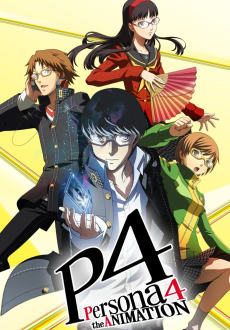 ANIME ActionPersona 4 the Animation
ANIME ActionPersona 4 the Animation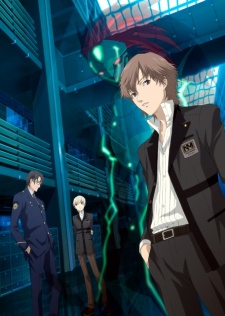 ANIME ActionPERSONA -trinity soul-
ANIME ActionPERSONA -trinity soul-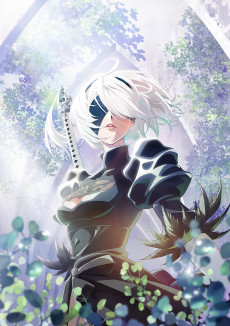 ANIME ActionNieR:Automata Ver1.1a
ANIME ActionNieR:Automata Ver1.1a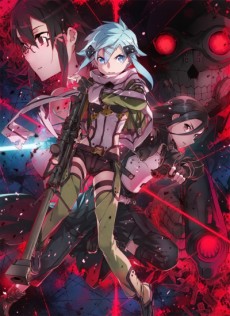 ANIME ActionSword Art Online II
ANIME ActionSword Art Online II
SCORE
- (3.95/5)
TRAILER
MORE INFO
Ended inJanuary 24, 2016
Main Studio A-1 Pictures
Favorited by 620 Users
Hashtag #P3_M


